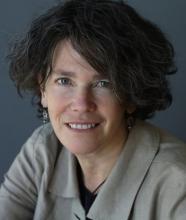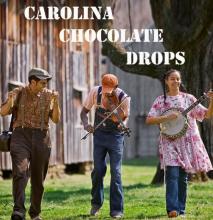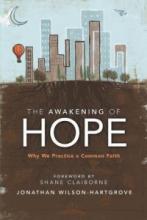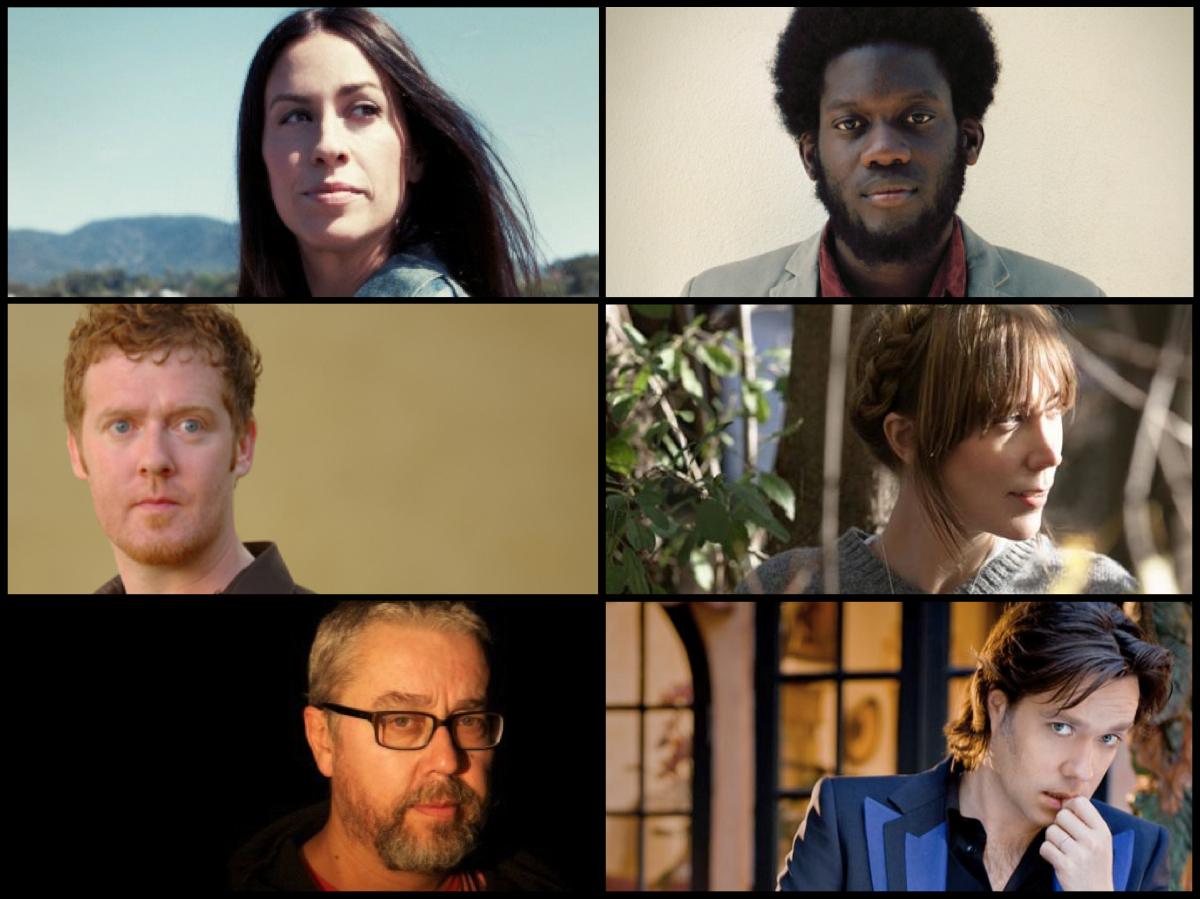Culture

STANFORD UNIVERSITY anthropologist T.M. Luhrmann has managed to do what few other social scientists in academia dare do: explore how evangelical Christians relate with God.
In her latest book, When God Talks Back: Understanding the American Evangelical Relationship with God (Knopf), Luhrmann analyzes how evangelicals come to personally know God through prayer, communal support, and even “dates” with God. As part of her field research, she spent 10 years attending worship services, small groups, and events at Vineyard churches in Chicago and California. Known for their trendy, seeker-friendly, tear-inducing services and intimate Bible studies, the Vineyard is home to millions of evangelicals in the U.S. and around the world.
Without pitting reason (too much) against faith, Luhrmann applies psychological and anthropological understanding to evangelical Christian belief. Not bad for an outsider looking in. Sojourners assistant editor Elaina Ramsey spoke with Luhrmann in June.
Elaina Ramsey: What motivated you to study how evangelicals experience God?
T.M. Luhrmann: I’ve always been curious about how God became real for people. I knew that good, kind, wise people had different understandings of what was real, and that always fascinated me. While I was doing another research project, I was talking to this beach girl who told me that if I wanted to understand the God of her church, I should have a cup of coffee with him. I thought that was amazing. I decided then that I was going to figure out how people were able to experience God so vividly, so intimately, so dialogically.

About love she was all wrong,
the old capitalist, patron saint
of the self-made rich. How well
she misunderstood the paradox deep
as mothers’ grief: that finding our self
requires losing it, that love and loss
make one truth, not two. Objective
as granite in relationships, her hero
never collapses into cancer with a wife,
never drops into death with a brother.

LATELY I’VE been on a campaign to read some of the classic novels that I should have read decades ago. This summer it’s been John Steinbeck’s The Grapes of Wrath. There, I confessed it. All these years I’ve been coasting on repeated viewings of the John Ford film adaptation. But I’m reading the original now. And despite the hunger and hardship faced by the Joad family, I find myself experiencing nostalgia for those old hard times.
Americans fell into the Great Depression of the 1930s without the safety net of unemployment insurance, food stamps, or federally insured bank deposits. In fact, victims of the current depression have those benefits because of the things their ancestors did 80 years ago. Back then, Americans pulled together with the sure belief that we are all responsible for each other and that no one of us can, or should, stand alone. They recognized that a common plight required common action, and they gave us a trade union movement and a New Deal.
In The Grapes of Wrath, that recognition is rooted in the primary value of family solidarity, which grows to include neighbors and co-workers, and, finally, in Tom Joad’s famous speech, extends to all people struggling for justice (“whenever they’s a fight so hungry people can eat”), and even to all humanity, past and present (“maybe all men got one big soul ever’body’s a part of”).
PASTOR T.C. RYAN spent 40 years haunted by the shadow life of compulsive sexual behavior. Despite the challenges, Ryan never gave up hope of trying to reach the fullest recovery. He tells his story in Ashamed No More.
Compulsive sexual behavior put Tiger Woods into the headlines and made him an object of ridicule, as it has for so many others. In telling his own story, Ryan tears back the curtain to reveal the fuller story of painful realities, challenges, and hopes for those faced with the daunting task of recovery from similar compulsions.
“Those who are not addicted to sex understandably assume that the addict at least experiences enjoyment from the sexual activity, but this is not the case,” Ryan writes.
As Ryan describes it, he was living a divided life. In one arena he was a capable and gifted pastor. In the other he was plagued by shame, self-loathing, and an inability to stop destructive behavior. His extensive explanation of the cycle of addiction, the lies he had come to believe from childhood, the role that therapy and other supportive measures played in his recovery, and his hopes for how the church can become the ultimate 12-step program make every chapter of this book essential.

RECENT MOVIES have been dominated by a surprising theme: the exploration of gender through black goo in outer space, strippers in Florida, and a red-haired teenage rebel in mythical Scotland. Detours among British ex-pats in India in The Best Exotic Marigold Hotel, a genetically modified high school student in New York in The Amazing Spider-Man, and a scout troop on a coastal New England island in the fabulous Moonrise Kingdom added flavor to the mix. But it was the deceptively simplest of films that caused me to think most about what it means to be a human being, and how the fact of gender must be wrestled with, negotiated, and contested rather than assumed.
The wonderful thing about Pixar’s Brave is how it negates the historic disempowerment of female fairy tale protagonists. This is a new kind of Disney princess: one who doesn’t need a man to save her, nor homicidal violence to achieve victory; one who develops a healthy relationship with her mother; one, ultimately, who takes responsibility for her mistakes, integrating Snow White purity with Mulan’s steel. It’s also a physically beautiful movie, delightfully entertaining, and alive for adults and kids alike.
On the other hand, the world of Magic Mike, wherein Channing Tatum relives his earlier career as a bachelorette-party treat, is a film about lost men who play on stereotypical female desire for tips. The soulful yearning for intimate connection that Mike embodies is the most emotionally resonant part of a film otherwise of average interest.
Across Sacred Fences
More than 50 contributors offer moving, insightful personal essays about interfaith experiences in My Neighbor’s Faith: Stories of Interreligious Encounter, Growth, and Transformation. Edited by Jennifer Howe Peace, Or N. Rose, and Gregory Mobley. Orbis Books
Women Rising
On Oct. 1 and 2, PBS will air the two-part special Half the Sky. Inspired by Nicholas Kristof and Sheryl WuDunn’s best-selling book of the same name, the film follows the authors through 10 countries to meet people challenging extreme gender inequality and the poverty, trafficking, and violence it perpetuates. pbs.org/independentlens
 New music from Ry Cooder, Bob Dylan, The Avett Brothers, Dave Matthews Band, Kathy Mattea, and David Byrne & St. Vincent.
New music from Ry Cooder, Bob Dylan, The Avett Brothers, Dave Matthews Band, Kathy Mattea, and David Byrne & St. Vincent.

Bill Fay is a story.
And the British singer-songwriter's new album Life is People — his first in more than 40 years — is a gem of a record that comes out of nowhere and makes an impression beyond great songs and great playing.
About 10 years ago I conjured the idea of a novel: A rock star releases two great records in the late '60s and then leaves the scene. Why? Would an ordinary job be more fulfilling than wealth and celebrity? I wanted to work out those questions in a novel-length story.
Fay just might be that story, but he certainly isn’t fiction.

Among my must reads are the Sunday New York Times Book Review and other book reviews I come across in various media outlets. There are too many books being published that I would love to read, but just don’t have the time. So, I rely on reading book reviews as one way of keeping in touch with what’s being written.
Here is my pick of this week’s books.

The Lance Armstrong news is still fresh on people’s minds, but based on the news and Internet chatter I’ve seen, this is being met with a more somber response than, say, Barry Bonds or Mack Mcgwire. In the case of the latter two athletes (along with many others), it seems that the public has revelled in some degree of Schadenfreude as they witness someone being pulled from their high pedestal, back down to dwell among us common folk.
Yes, we have a strange bloodlust for tearing down those we’ve chosen previously to build up as icons or role models, and Armstrong’s grave-dancers surely will come out of the shadows in time, but is there something different about him? Do we have more of a reason to mourn his precipitous decline, as opposed to others who have preceded him?

The scandal du jour across the morning news shows today was Lance Armstrong's decision to stop fighting doping investigations. It means he is stripped of his record seven victories in the Tour de France and his bronze medal in the 2000 Olympics.
While saying uncle in the doping fight doesn't necessarily equal guilt, the presumption is that Armstrong knew things were going to come out in the investigation — that there was some evidence or testimony that would not look good.
Today on Morning Joe, I thought MSNBC contributor Jonathan Capehart hit the nail on the head:
"This is yet another institution that has failed. … We've seen everything that people believed in — whether it's the financial institution or government itself or just heroes — just falling by the wayside. You're seeing that this world that we have constructed of sort of purity and perfection, it's just not real."
Spike Lee is not about to give up filmmaking but – at least for a moment or two – he sounded a bit like an expert on the challenges facing the church as he promoted his new movie Red Hook Summer.
“Any church whose members are senior citizens and there’s no youth coming behind, they’re going to die out,” Lee said in a roundtable discussion with reporters.
“Now that goes for synagogues, mosques, temples too — any institution,” Lee continued. “You got to always try to have that infusion of youth. They might not be as smart but youth has energy.”

Among my must reads are the Sunday New York Times Book Review and other book reviews I come across in various media outlets. There are too many books being published that I would love to read, but just don’t have the time. So, I rely on reading book reviews as one way of keeping in touch with what’s being written.
Here are my picks of this week’s books.

Jonathan Wilson-Hartgrove is a modern-day sage. A leader in the New Monastic movement, Hartgrove offers New Monastics and the church at-large profound lessons revealed through the practices of catechism — the spiritual disciplines of Christian faith.
Tempted by the powers of isolation, consumerism, pride, and violence this generation is drawn to the calls to community and simple living for reasons it hardly knows. Wilson-Hartgrove explains the “why."
Through the stories of well-established intentional Christian communities, Wilson-Hartgrove offers windows into the catechisms of the Christian faith. Communion and the Eucharist, fasting, integrity, community, non-violence, and public witness each serve as windows into much deeper philosophical and theological discussions.
Today is my last run of "Links of Awesomeness." And rather than ending with a mediocre list of new links, I went through the archives to compile some of my favorites from this year. Enjoy the links and expect a fresh new batch from the next intern in early September.

Today is my last run of "Links of Awesomeness." And rather than ending with a mediocre list of new links, I went through the archives to compile some of my favorites from this year. Enjoy the links and expect a fresh new batch from the next intern in early September.
At the last Festival of Faith and Writing at Calvin College, Brian Walsh interviewed singer / songwriter Bruce Cockburn. The following is the six-part interview. And continue scrolling to get the audio of Cathleen Falsani's 2006 "God Factor" interview with Cockburn.

Today, Gawker answers that question by extensively evaluating the candidates in sports, fashion, education, bro-pinions, and, most importantly, beer. Which one’s got the best bro traits? Our current beer-loving commander-in-chief? Right-hand man and University of Delaware graduate, Bro Biden? Or might the title go to the skinny-jean wearing, M.B.A. Mitt Romney? Or the young, newly chosen running-mate who loves Rage Against the Machine?
CLICK HERE TO SEE WHO IS THE BIGGEST BRO IN THE 2012 PRESIDENTIAL RACE
 New music from Rufus Wainwright, World Party, Beth Orton, Glen Hansard, Alanis Morissette, and the wonderful new Anglo-Ugandan singer songwriter Michael Kiwanuka.
New music from Rufus Wainwright, World Party, Beth Orton, Glen Hansard, Alanis Morissette, and the wonderful new Anglo-Ugandan singer songwriter Michael Kiwanuka.
Neighborhood Film Company reaches out to homeless people in Philadelphia --- interview with The Book's founder Nick Zammuto --- This American Life's "The Convert" --- Pixar's new short film "Partysaurus Rex" --- musicians Silversun Pickups vs. the Romney campaign --- Stride gum parodies Apple --- Over the Rhine documentary from Nowhere Farm in Ohio. See these and more in today's Links of Awesomeness...